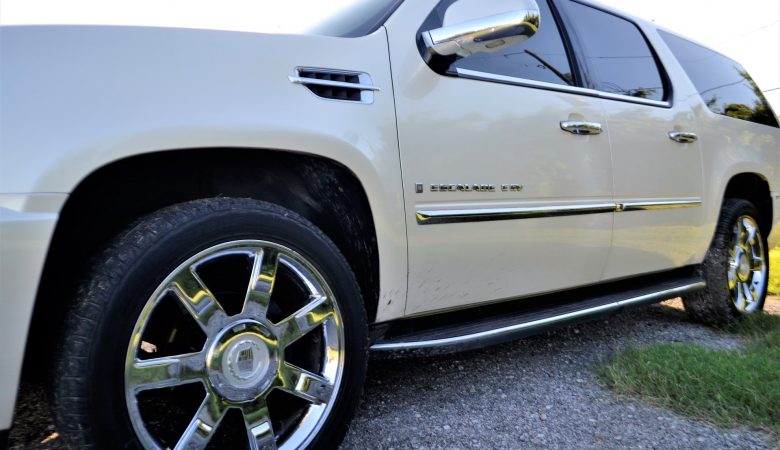Determining the proper value of a car when selling it can be considered an art, a mixture of intuition and research. If you get it wrong, you could end up waiting weeks without receiving calls or emails from potential buyers. For this reason, we made this guide on how to determine the value of a car and set its ideal sale price.
Vehicle’s value and second-hand car prices
Setting the right price for second-hand cars helps to sell vehicles faster and both parties benefit: prevent the buyer from feeling cheated and the seller to get the most out of his car.
The value of a car depends on various components, including the vehicle’s age, condition, mileage, and extra equipment (among others). Also in this article we explain what other factors that are beyond your control you should take into account, such as the market.
The ideal is to find the sweet spot, a price that the buyer is willing to pay and for which the seller is willing to sell it. The following steps will help you find this sweet spot and determine the value of the car when you sell it.
Assess the market
Before even starting, you should consider the current situation in the used market. The following questions can help you better understand the market:
What is the current demand for that class of vehicle? Vehicle categories such as family saloons are almost always in high demand. On the other hand, commercial trucks and vans are also in higher demand today, these tend to sell quickly and at competitive prices.
Is it the right time of year to sell your type of vehicle? Selling a convertible in the middle of the raining season could lower the perceived value of the car. This could also cause the vehicle to stagnate on the market for longer. On the other hand, selling a convertible in the dry season, when the days are usually clear, helps you find a buyer more quickly.
What is the economic situation at the moment? If we are in the middle of a crisis where people focus on saving, the prices of second-hand cars may be affected. Also consider the price of fuel, if you are selling a fuel-efficient vehicle and gas prices are relatively high, the value of your car will increase considerably.
Take a look at the ads for similar cars
Unless you are selling a unique vehicle, it is highly likely that someone else is selling a similar vehicle. Checking the advertisements on the web is one way to get an idea of the value of your car.
If you want to be more exact when determining what prices are asking for similar second-hand cars, don’t limit your search to just their make, model and year. Take a look at other makes and models of cars that offer similar features to yours.
Consider how mileage affects the value of your car
Remember that not all cars of the same make, model and year are the same. As mentioned in the previous point, it can be difficult to find a vehicle with similar equipment to yours and that is in the same condition. Comparing vehicle mileage is one of the best ways to determine whether your car’s value should be higher or lower than someone else’s. A car with only 80,000 km will most likely have a longer life than one with 250,000 km.
First of all, it would be necessary to know the actual mileage.
Calculating how much mileage affects the value of the car is not an exact science. However, here are some tips on what to keep in mind:
Relationship between the years of the vehicle and the mileage. If you are selling a vehicle that is two years old and already has 50,000 km on the odometer, it may look like it has seen a lot of use. By contrast, a car that is ten years old and 80,000 km has clearly not been used as much. While this does not necessarily mean that the ten-year-old car is in better condition than the two-year-old, buyers will unconsciously take it seriously.
The average mileage of the vehicles is 15,000 km / year. Buyers can use this information to make an estimate. Owners of vehicles that have been driven more than this average can wait for the value of their car to drop a bit.
Take into account the condition of the vehicle and the extras it includes
Optional equipment or vehicle extras, such as a GPS, a good sound system, heated leather seats, air conditioning, sunroof and / or convertible, are the main factors in the increase in the prices of second-hand cars.
Also take into account the condition of your vehicle. If you have properly maintained your vehicle and have never been in an accident, this will be an advantage.
Set a competitive price for your car
The goal as a seller is to set a price that is competitive for the market, but is also at the upper end of the price range. The reason is that this leaves some scope for the inevitable negotiations with the buyer, while still allowing you to get the most out of your car.
The best way to start is to think about the final price you would like to achieve and work your way up from there. Taking into account all the previously mentioned elements to determine the value of the car, let’s say you want to close the deal at ₦ 1,450,000. Asking ₦ 1,850,000 for the vehicle allows you some negotiation without having to lower the price you want.
For more expensive cars you will need to leave a little more room in your price, since buyers tend to negotiate larger sums.
conclusion
Setting the price for second-hand cars can be difficult, but following the steps mentioned above can go a long way. Remember to set a higher price to maximize the value of the offers on your car as much as possible; But, if you find that you are not getting many responses, consider gradually lowering the price until you are called. If you already start with too low a price, you will sell your car quickly, but it will probably not get the value it deserves.
In addition to these recommendations, don’t forget to read our guide on how to sell a second hand car










Leave a Reply